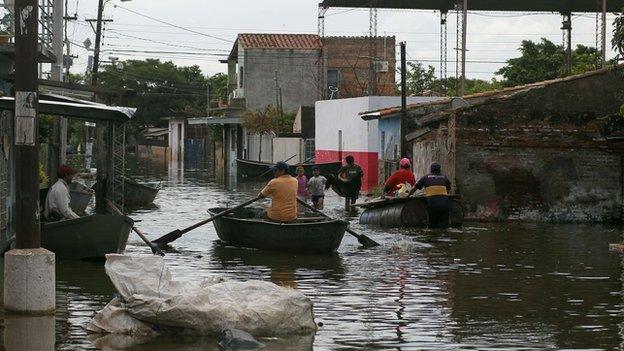Wettest and warmest December 'won’t become norm for decades'
- Published
Roger Harrabin shows how the warm December has affected plants in his garden
A wet, but mild, December was a record-breaking month, the UK Met Office's final figures show - so why was it so extreme and can we expect more of the same?
It was the warmest December since records began in 1910 - and the wettest of any calendar month on record.
Mean temperatures were about 4C (7.2F) above the long-term average.
The Met Office says there is a direct link between the warmth and the record rains that brought widespread floods across Scotland, Northern Ireland and northern England.
Stormy December 'was wettest on record'
Storms propelled by the jet stream were mainly to blame, it says, with contributions from the El Nino weather phenomenon and man-made climate change.
December was something of a freak month, it acknowledges.
It says climate change has raised UK temperatures by around 1C (1.8F) so far, so it will be many decades before this level of extreme weather becomes the new winter norm.
Other scientists say that with climate change, there will be no "normal" weather.
Jumbled seasons
Meanwhile, the unseasonal warmth has disrupted the natural world, and affected the way we live and the amount of cash we have to spend.
People in T-shirts have been out in the gloom of winter, fuel bills are down, and the winter deaths total is likely to be lower than usual.
Plants are also flowering at bizarre times. In Kew Gardens, in south-west London, a magnolia tree is in full bloom alongside daffodils.
A currant bush - Ribes sanguineum - came into flower before Christmas when it is normally expected in March.
My own garden in London still has a rose in flower and a strawberry on its bush.
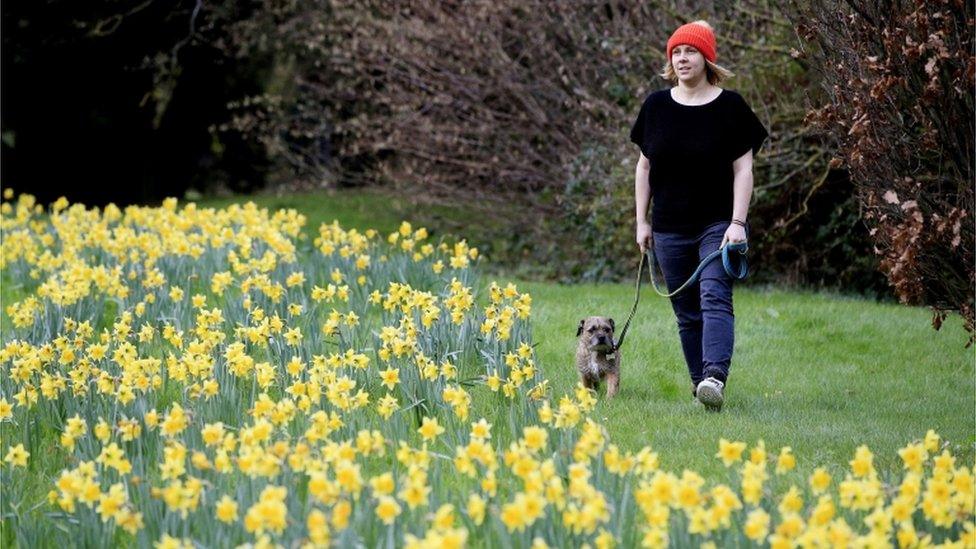
Daffodils and T-shirts on Boxing Day in Berkshire
Tony Kirkham, head of the arboretum at Kew Gardens, said the recent jumbling of seasons was causing problems in the natural world.
"The plants are really mixed up, they don't know what season they're in. They think spring is on the way, and they need to flower and grow leaves to make food.
"The seasons are normally quite short so they do it as soon as time allows.
"The downside is is that we could get a frost, and all these young leaves are very tender and not used to temperatures below freezing, and they won't flower again in spring.
"And it's a food source for insects that won't be around when insects need it."
Cold to come
The Met Office does not expect the exceptional warmth to continue.
We will be heading for colder, drier weather in late winter, it says - although it is loath to offer a hostage to fortune by predicting exactly when.
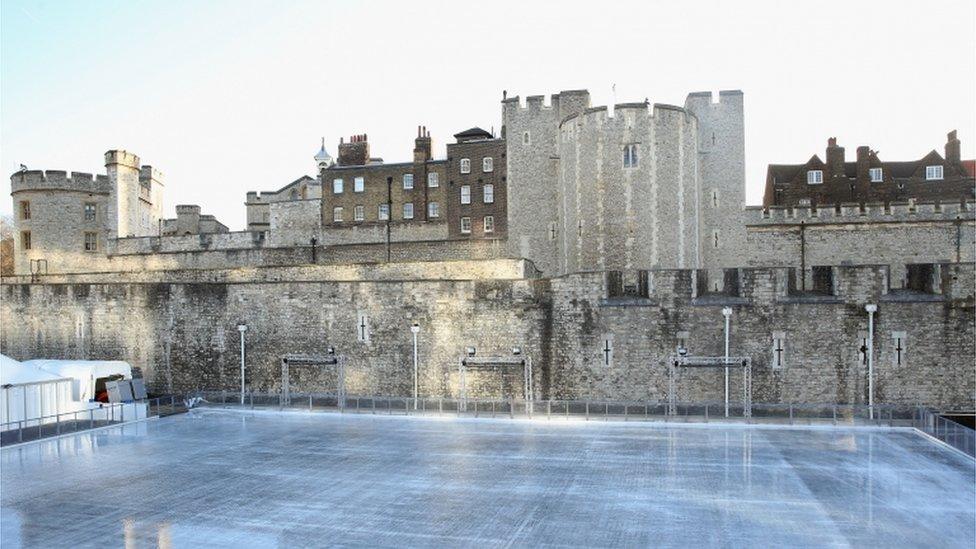
Warm weather forced the closure of the Tower of London ice rink
Prof Adam Scaife, head of medium-term prediction at the Met Office, said: "The mild, wet weather is coming to an end - not this week but in a while.
"This December has really been out of the ordinary. We think climate change has played a part in the extreme temperature and rainfall - but only a minor one.
"It's not feasible for climate change to have increased temperatures as high as they have been - the jet stream has been the main driver of conditions, bringing winter storms.
"Warmer air can hold more moisture, and we expect winters to become warmer and wetter with climate change - especially in the North. But we wouldn't expect the sort of weather we've had in December to become normal in the UK for many decades."
Prof Myles Allen, from Oxford's department of atmospheric physics, said: "There is no such thing as a new normal with climate change.
"Climate change is not a transition to a new normal. It's a trend. Decembers like this will be what we expect in a couple of decades' time."
Follow Roger Harrabin on Twitter: @rogerharrabin, external; and on Facebook, external.
- Published5 January 2016
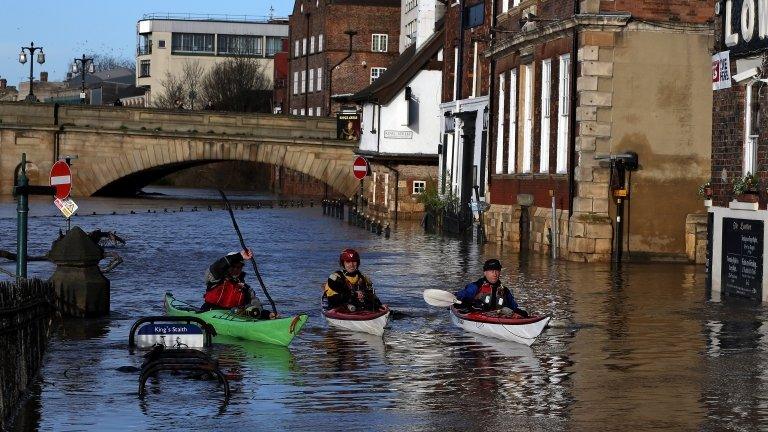
- Published31 December 2015
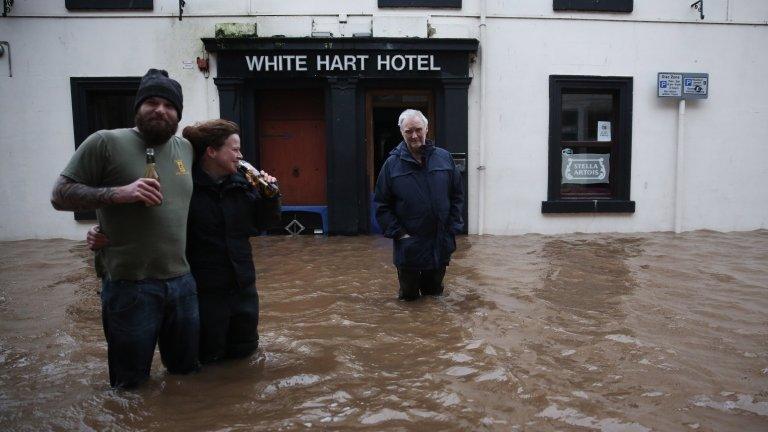
- Published30 December 2015
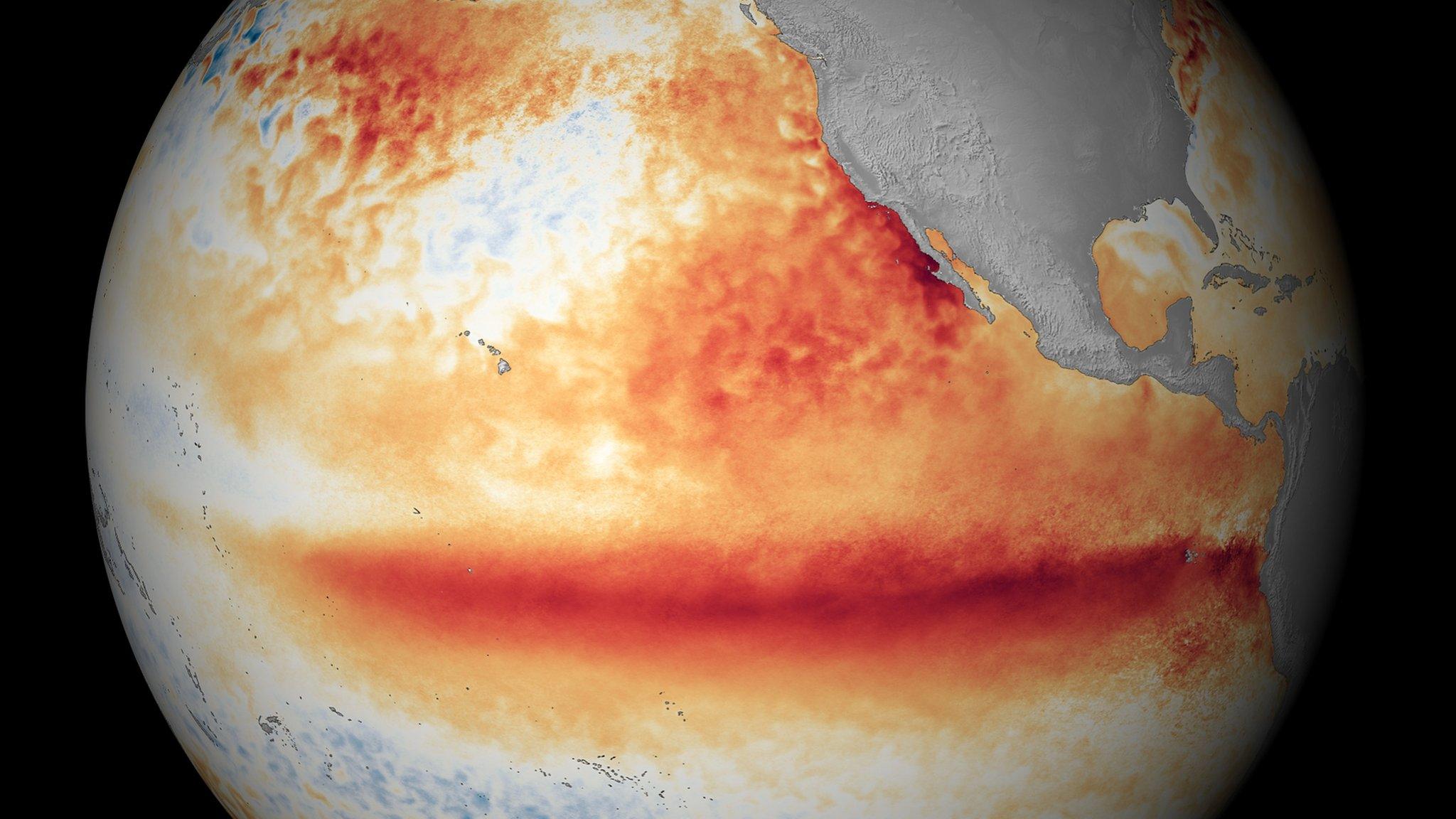
- Published30 December 2015
